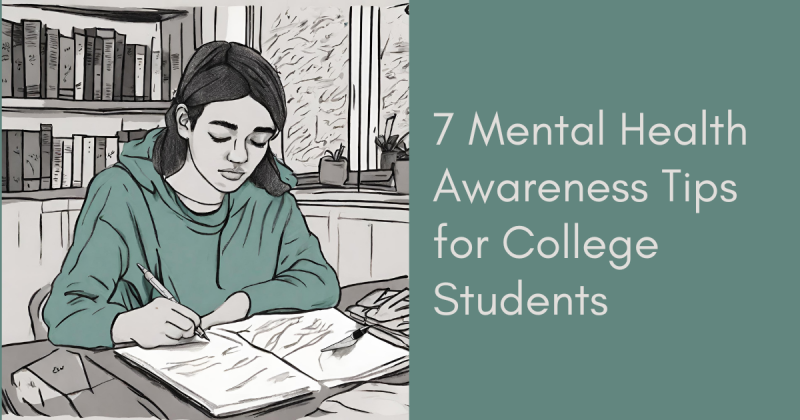Mental Health Awareness Month: 8 Mental Health Tips From the Experts | Mental Health

Mental health issues are not new. However, Mental Health Awareness Month has been observed around the country since 1949 through the media and special events. Today, conversations about mental health have become more mainstream and much less taboo than ever before.
Let’s continue the discussions with advice from authors and experts across a broad spectrum of backgrounds and experience:
1. Volunteer
“One way to add positive people to your life and also improve your mood is through volunteering. Whether it involves helping out at a homeless shelter, delivering food to those in need or volunteering to walk dogs at the local animal shelter your mood will improve along with you contributing to make the world a better place. Often local churches or synagogues have group activities in order to maximize the efforts of participants. Big Brother/Big Sister programs can also use more role models for kids in the community. Volunteering is also a great way to meet people, too.” – Alyson Nerenberg, Psy. D., licensed psychologist specializing in relationships and addictions and author of No Perfect Love: Shattering the Illusion of Flawless Relationships
2. Remember That You Are More Than Your Mental Health Diagnosis
“Your diagnosis colors the contours of who you are – adding indigos, teals, burnt oranges, magentas, ambers, crimsons, mauves – to the canvas of your life but it does not define who you are. You are the artist who captures those colors to create a portrait of depth and meaning, filled with the joy, sorrow, talent, weakness, determination and uncertainty that are you. Pick up your artist’s palette and immerse yourself in your colors. You are more than your mental health diagnosis. You are the artist.” – Lyn Barrett, retired teacher and author of Crazy: Reclaiming Life from the Shadow of Traumatic Memory
3. Don’t Be Afraid to Talk to Someone
“Some people think that seeking help for mental health issues shows weakness. In fact, the opposite is true. All of us face difficult issues: job loss, quarrels with friends, the death of family members, etc. Pretending that these crises do not upset us prevents individuals from making progress. Therapists can help us to understand ourselves better and to see patterns in our reactions to difficult situations. Trained counselors give us insights and advice that enables us to draw on our strengths and move more calmly through life.” – Janet Ruth Heller, retired college professor and author of Nature’s Olympics
4. Share the Load
“One of the greatest sources of exhaustion, is the feeling that we are alone here: that no one else cares about what we care about or is fighting for what we’re fighting for. This is almost never true, but the more time we spend by ourselves, the easier it is to believe that. Community is medicinal. When we share our life and work with like-hearted people in meaningful, interdependent relationships, we are far less likely to burn out quickly, which is the goal. This isn’t about you expiring early, it’s about a lifestyle of sustainable compassion that will allow you not only to care deeply, but to be here a long time while you do. Finding your tribe will make this far easier. Don’t go it alone.” – John Pavlovitz, pastor and author of If God Is Love, Don’t Be a Jerk
5. “Read Pictures
“Reading is a great tool for learning about emotions, and picture books offer an additional tool for teaching emotional literacy: illustrations. When a happy, scary, or frustrating event occurs in a story, pause and look at the picture together. Ask, ‘Look at them – how do you think they are feeling right now?’ Examine characters’ facial expressions, body language and what they are doing. You can use this same technique when you watch movies, shows or videos together. These strategies work best when we, as adults, model them. Children take their emotional cues from us, so talk about how you are feeling and why. Share what you do to feel better and calm down when you are sad, mad or scared. Practice mindfulness with children. And curl up and read a good book together – an activity that is sure to help children feel safe and loved!” – Deborah Farmer Kris, child development specialist and author of the All the Time children’s picture book series
6. Exercise Is Essential to Managing Both Acute and Generalized Anxiety
“Although I play sports both in and outside of school, that’s not where my level of activity stops. Your physical activity doesn’t have to be anything competitive. If you like yoga classes or playing tennis at the local rec center, that’s great. By taking part in any kind of aerobic activity, you are not only helping your body to release stressful toxins but you are also focusing on something other than your anxiety. Anything that gets you moving and your blood flowing will be helpful. Exercise reduces your level of stress hormones and stimulates the production of endorphins, hormones that are known to elevate your mood.” – Carter Weinstein, college student and author of Conquering Fear: One Teen’s Guide to Overcoming Anxiety
7. Therapy Can’t Help Sociopaths, but It Is Crucial for Their Targets
“The prevailing view in the mental health field is that sociopaths ‘burn out’ and engage in less antisocial behavior as they age. It’s not true. For my book, survey respondents described people whom they believed were senior sociopaths. Of the respondents who knew the individuals both before and after age 50, 91 percent said their behavior was just as bad, or worse, as they aged. Survivors often feel like they are to blame for what they endured, when the truth is that they were manipulated and deceived.” – Donna Andersen, dysfunctional relationships expert and author of Senior Sociopaths: How to Recognize and Escape Lifelong Abusers
8. Let Yourself Off the Hook
“Try mindfulness in tiny bursts, and realize that you are going to ‘fail’ at it every time. There is no ‘right’ way to practice mindfulness. The job is to bring your awareness back to the present moment. Some days that means pretending I’m a Buddhist monk while I sit on my deck filled with warm sunshine. That is, until the circus monkeys start banging their drums and I’m off into my very not-present-moment thoughts. Even the tiniest respite from our shared insanity is the possibility of a sliver of contentment. Use grounding techniques. Above all, remember that the moment won’t always feel good, but it won’t always feel bad either. Be kind to yourself when you practice any new skill. Just kindness turned inward can radically change your life. One tiny moment at a time.” – Caitlin Billings, psychotherapist, licensed clinical social worker and author of In Our Blood (July 2022)
Mental Health Awareness Month is the perfect time to seek help or advice without feeling shame. Consider these tips for taking care of yourself, and find the best ways to manage and improve your stress levels, coping mechanisms and support systems that you can use all year long.
Note: 30Seconds is a participant in the Amazon affiliate advertising program and this post contains affiliate links, which means we may earn a commission or fees if you make a purchase via those links. The content on 30Seconds.com is for informational and entertainment purposes only, and should not be considered medical advice. The information on this site should not be used to diagnose or treat a health problem or disease, and is not a substitute for professional care. Always consult your personal healthcare provider. The opinions or views expressed on 30Seconds.com do not necessarily represent those of 30Seconds or any of its employees, corporate partners or affiliates.
Take 30 seconds and join the 30Seconds community, and follow us on Facebook to get inspiration in your newsfeed daily. Inspire and be inspired.
Related Products on Amazon We Think You May Like:
30Second Mobile, Inc. is a participant in the Amazon Services LLC Associates Program, an affiliate advertising program designed to provide a means for us to earn fees by linking to Amazon.com and affiliated sites.
















